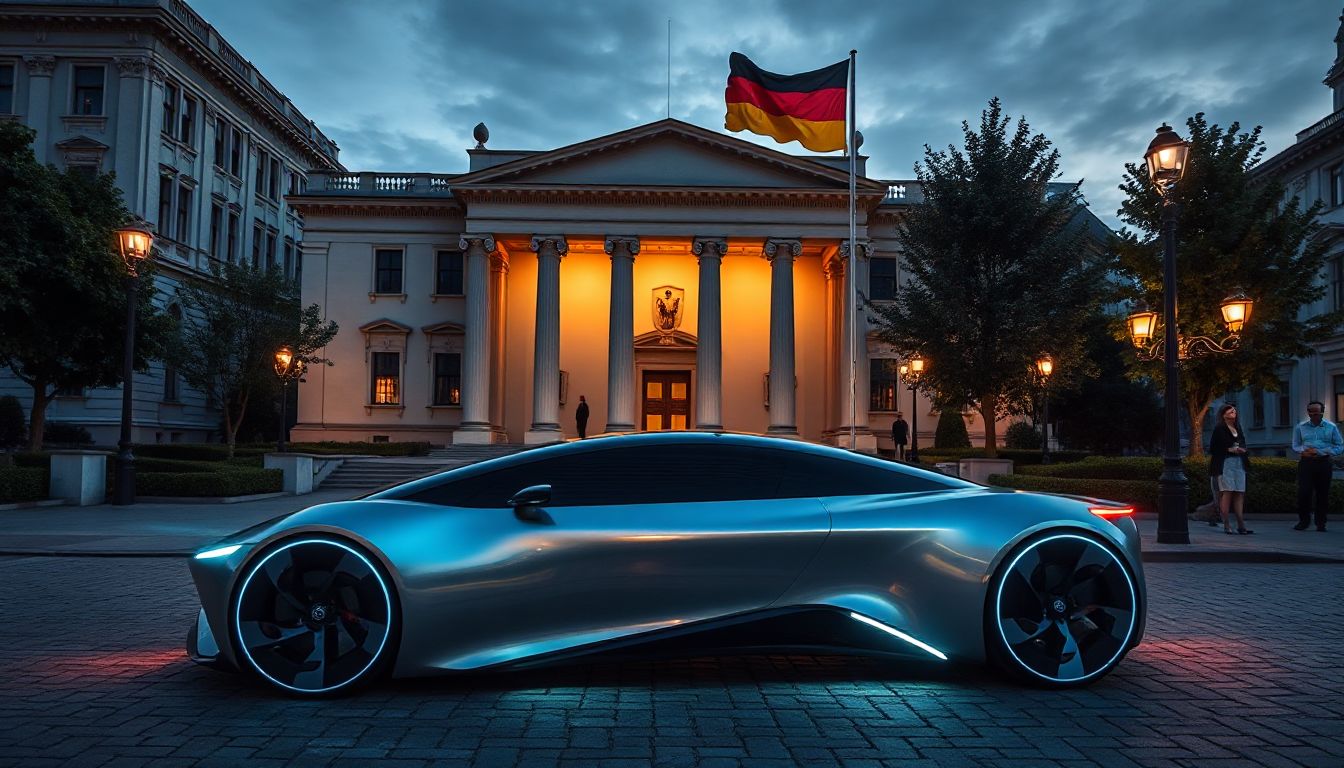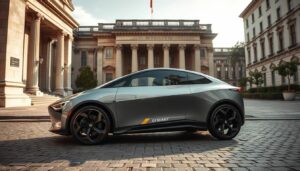Germany has become a leader in electric vehicle (EV) technology and adoption.
As more people look to buy electric cars or set up EV businesses here, understanding how embassies can help is key. Whether you’re an expat, traveler, or investor, knowing the right steps makes all the difference. This guide walks you through what you need to know about EVs and how to navigate embassy procedures smoothly.
Understanding Germany’s Electric Vehicle Landscape
The Rise of Electric Vehicles in Germany
Germany’s EV market is booming. In recent years, sales of electric cars soared, with over 1 million EVs registered by 2023. Big names like Volkswagen, BMW, and Mercedes-Benz lead the way, making Germany a global hub for EV manufacturing. The government supports this growth through subsidies and investing billions into charging stations. This proactive stance has helped Germany stay at the forefront of green transportation.
Germany’s EV Infrastructure and Charging Network
Charging stations are popping up across the country. You’ll find thousands of charging spots—both slow AC chargers and fast DC stations—making long drives easier. Regions like Berlin, Frankfurt, and Munich have dense networks, but rural areas can still be tricky. The government plans to increase connections further, so EV owners won’t have to worry about running out of juice.
Environmental and Regulatory Framework
Germany enforces strict emission standards. The aim is to reach climate goals by encouraging EV use. If you’re importing or registering an EV, you need to follow certain rules about emissions and safety. The government also offers incentives for people who buy EVs, like tax breaks and grants, making it cheaper to go electric. These policies shape the future of transportation here.
Navigating the German Embassy for EV-Related Services
Applying for Electric Vehicle Import and Registration
To bring an EV into Germany, you’ll need proper paperwork. That includes proof of ownership, emission certificates, and import documents. Embassies support expatriates during this process, helping verify documents or clarify procedures. For smooth registration, it’s best to contact your local embassy or consulate beforehand, so you know what’s required.
Visa and Residency Considerations for EV Entrepreneurs and Investors
If you plan to start an EV-related business or invest in Germany’s green tech, multiple visa options exist. Entrepreneurs can apply for business visas that, once approved, lead to residency permits. The embassy offers guidance for legal paperwork and helps connect you with local authorities. Remember, your EV business plan can be a key to unlocking new residency pathways.
Obtaining EV Incentives and Subsidies through the Embassy
Embassies can assist you in accessing German government incentives. They guide you through applications for grants or tax benefits, making sure you meet deadlines and qualifications. In some cases, embassy staff can even help set up appointments with officials or provide translation services to speed things up.
Legal and Technical Requirements for EV Ownership in Germany
Vehicle Compliance and Certification
Before driving an EV here, it needs to meet German standards. That means passing emission checks and getting certification from recognized bodies. For imports, adherence to these rules is crucial—failures can lead to fines or penalties. Ensuring certification is in place keeps your EV legal and running without hassle.
Charging Station Regulations and Safety Standards
Installing a home or public charger involves following safety laws. You may need permits and should have safety checks done regularly. If you face issues, embassies often help connect owners with local authorities to resolve technical disputes or legal questions.
Emissions, Taxes, and Incentives
German EV owners benefit from tax exemptions and VAT reductions. Claiming these involves submitting certain documents to tax offices. Embassies can direct you to the right agencies and help prepare paperwork, so you get your perks without delays.
Practical Tips for Embassy Visitors and EV Owners
Planning Your EV Journey in Germany
Planning long trips? Focus on regions with many charging stations, like the Ruhr Valley or southern Bavaria. Use apps such as ChargeMap or PlugShare to locate chargers quickly. Planning ahead ensures you avoid range anxiety and enjoy stress-free travel.
Embedding EV Culture and Community Engagement
Joining local EV clubs and attending events can deepen your understanding and network. Many embassies organize cultural activities or support local green initiatives. Connecting with communities makes adopting EVs more fun and rewarding.
Future Developments and Trends
Germany plans to build more fast-charging hubs and push for even stricter emission rules. New technologies like solid-state batteries and wireless charging are on the horizon. Embassies are also updating their services to include advice on these innovations, ensuring you stay ahead of the curve.
Conclusion
Getting involved with EVs in Germany is a strategic move. Understanding how to connect with your embassy for import, registration, and incentives simplifies the journey. Knowing the legal and technical rules helps avoid pitfalls. Whether you’re buying your first electric car or launching a green tech startup, embassy resources are there to support. Take advantage of these tools, and enjoy the ride toward a cleaner, greener future in Germany.




